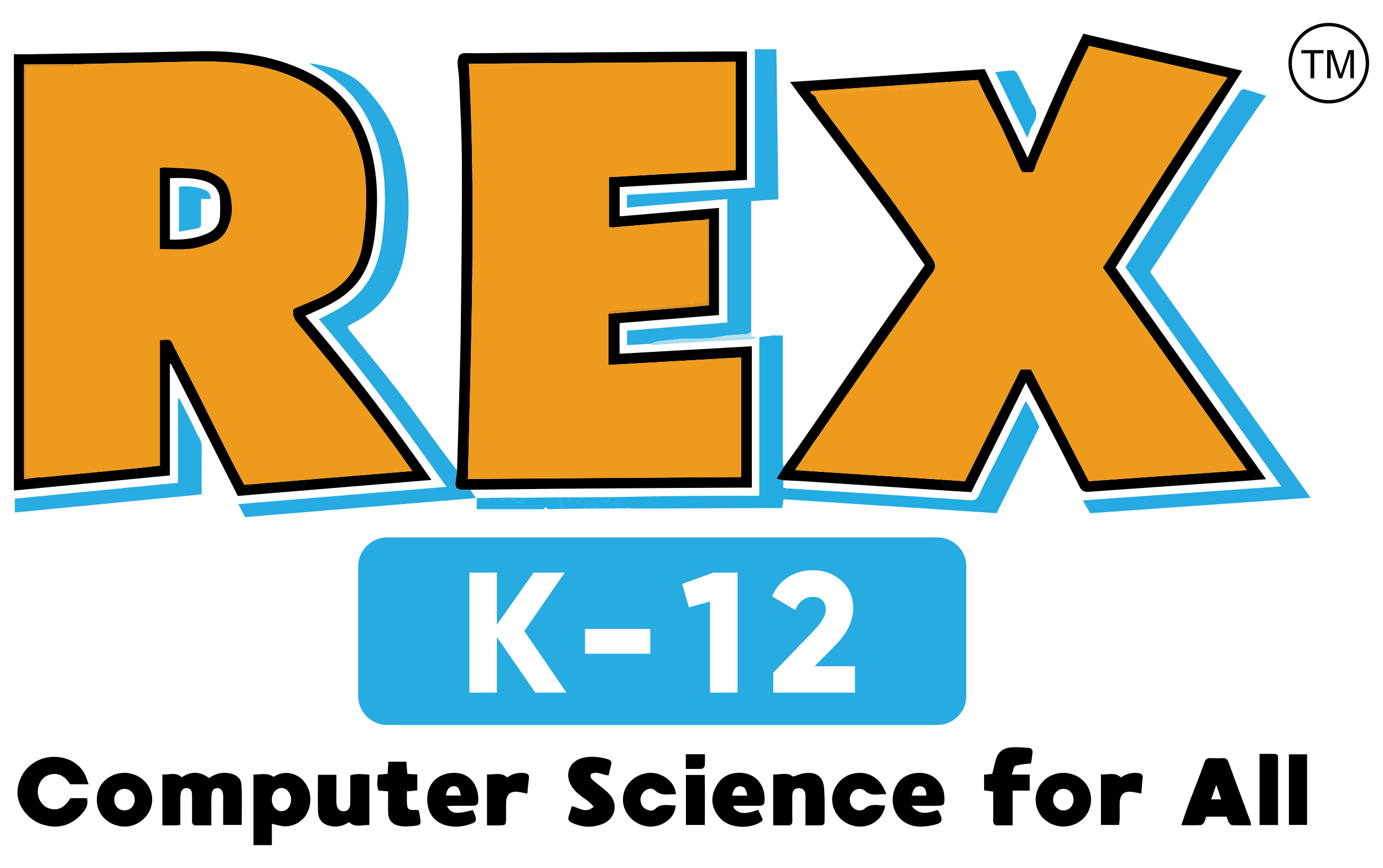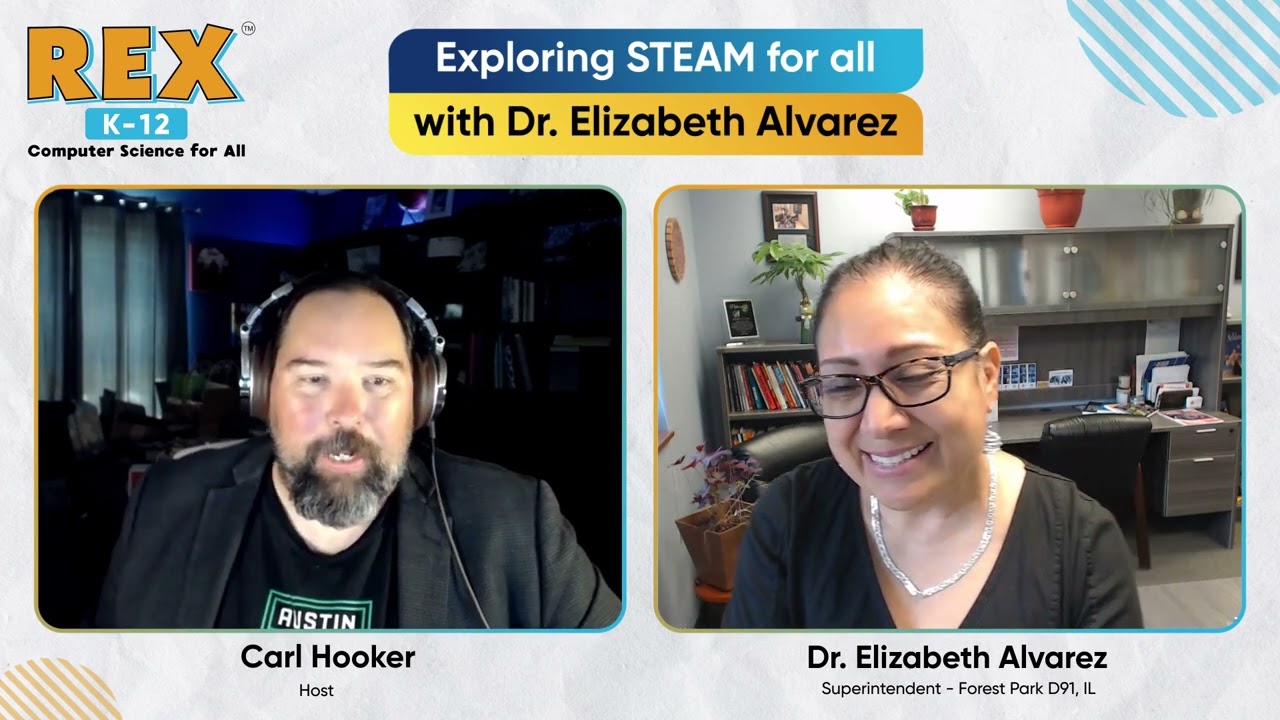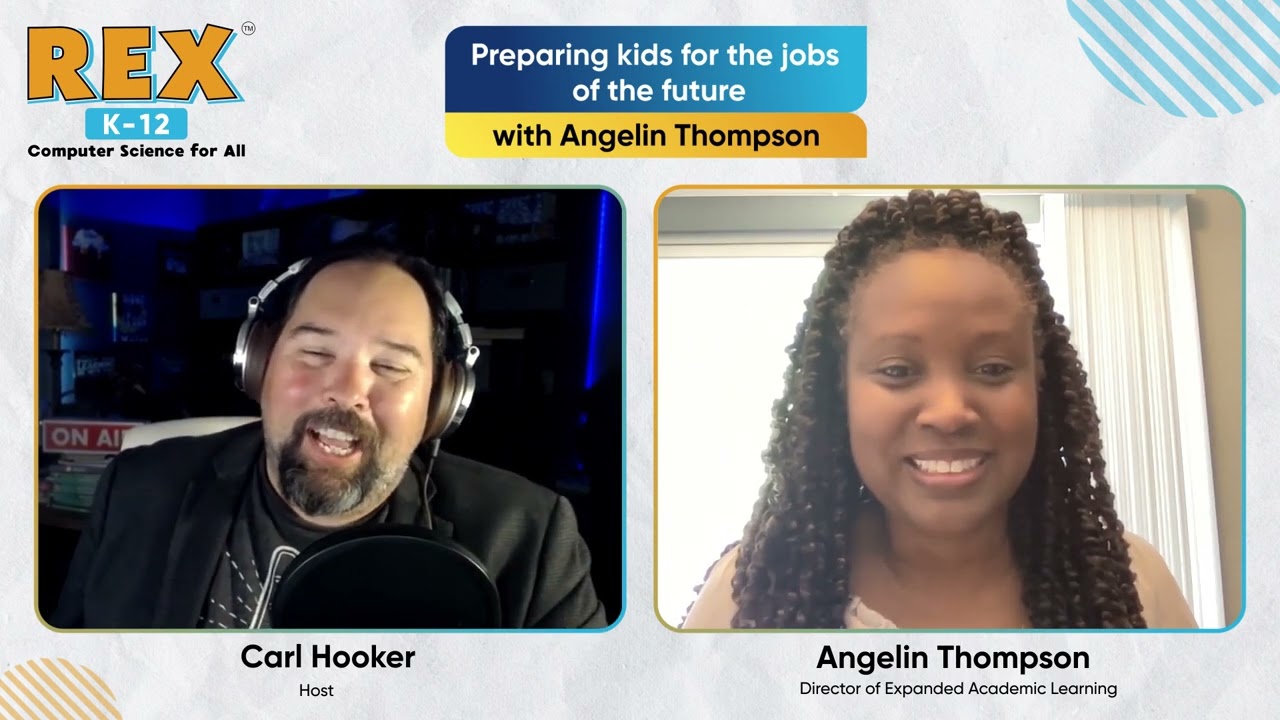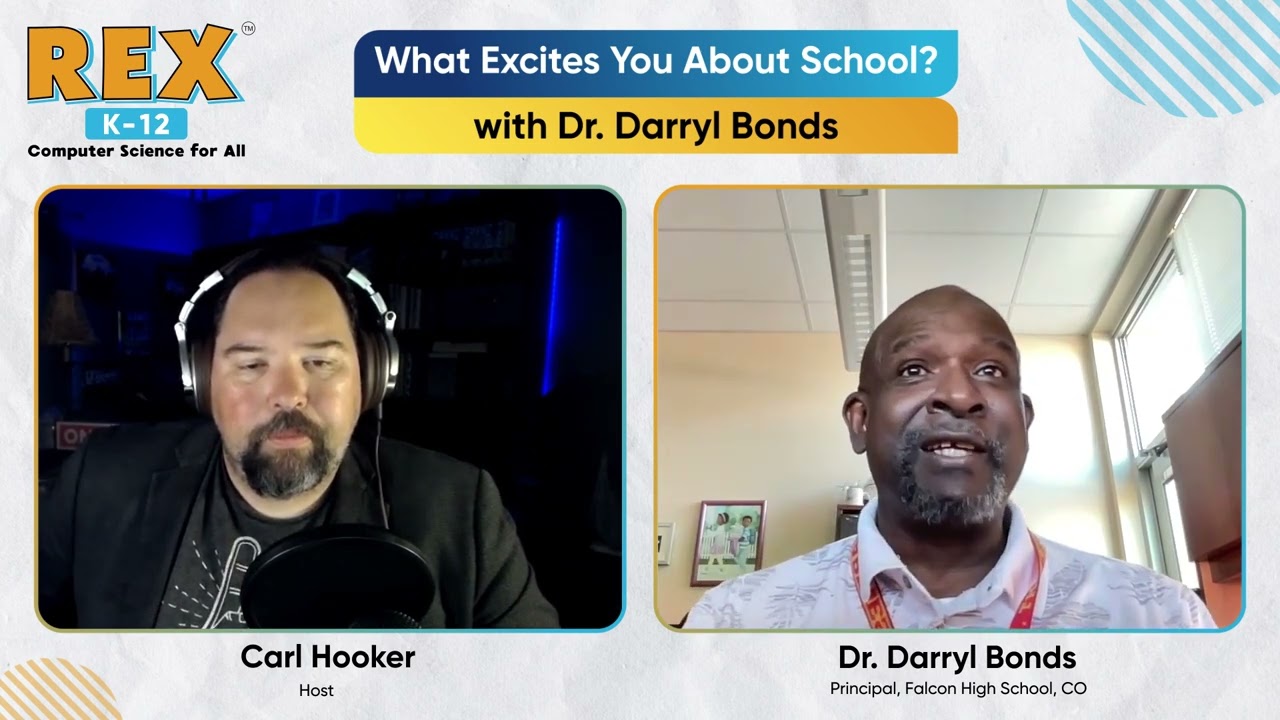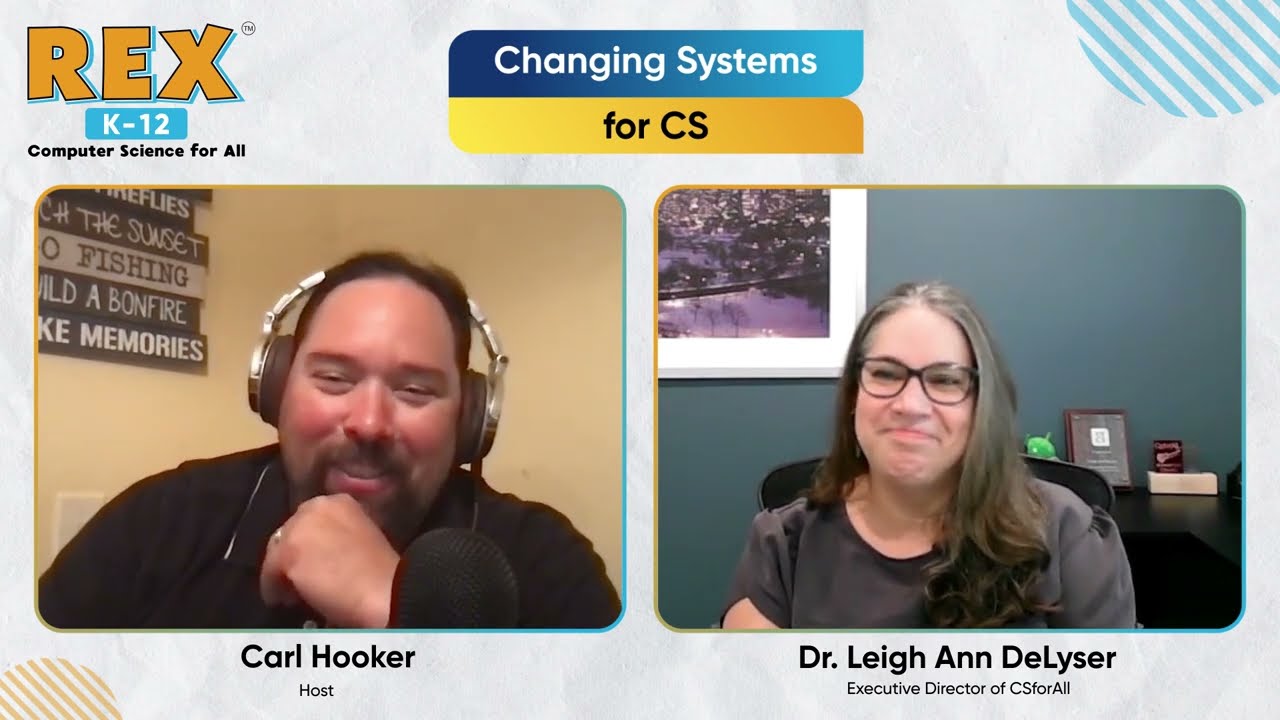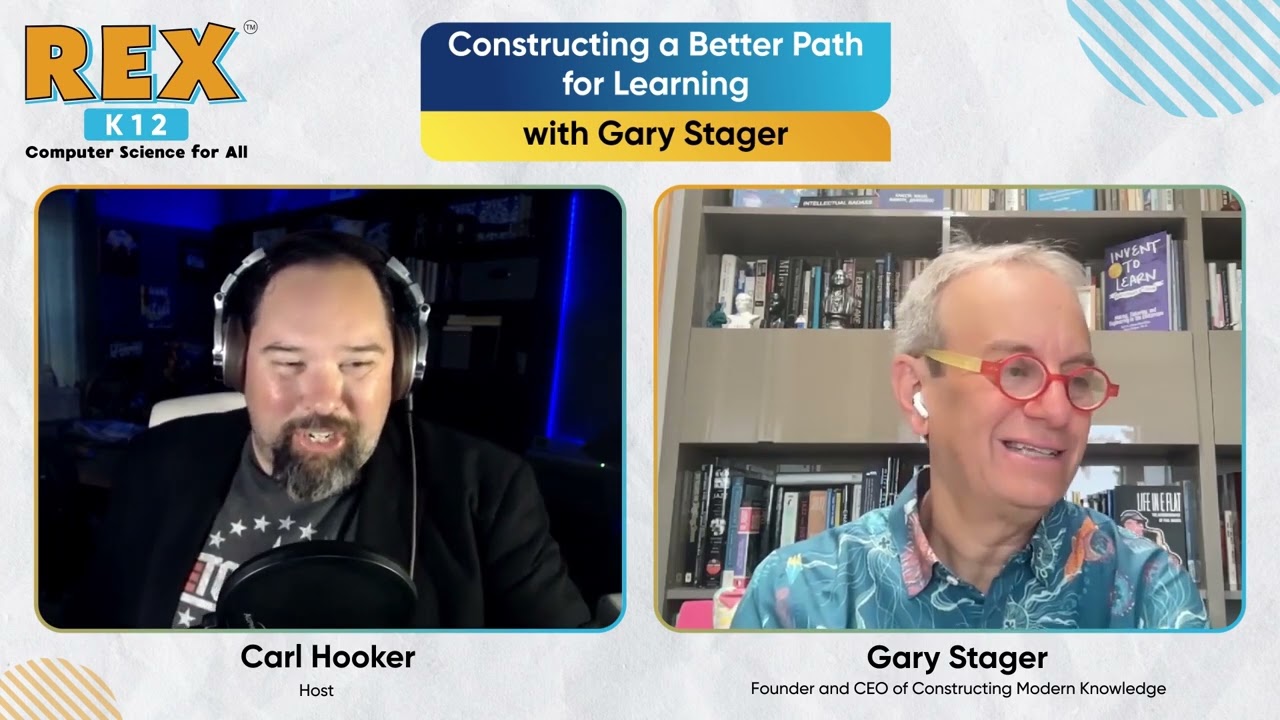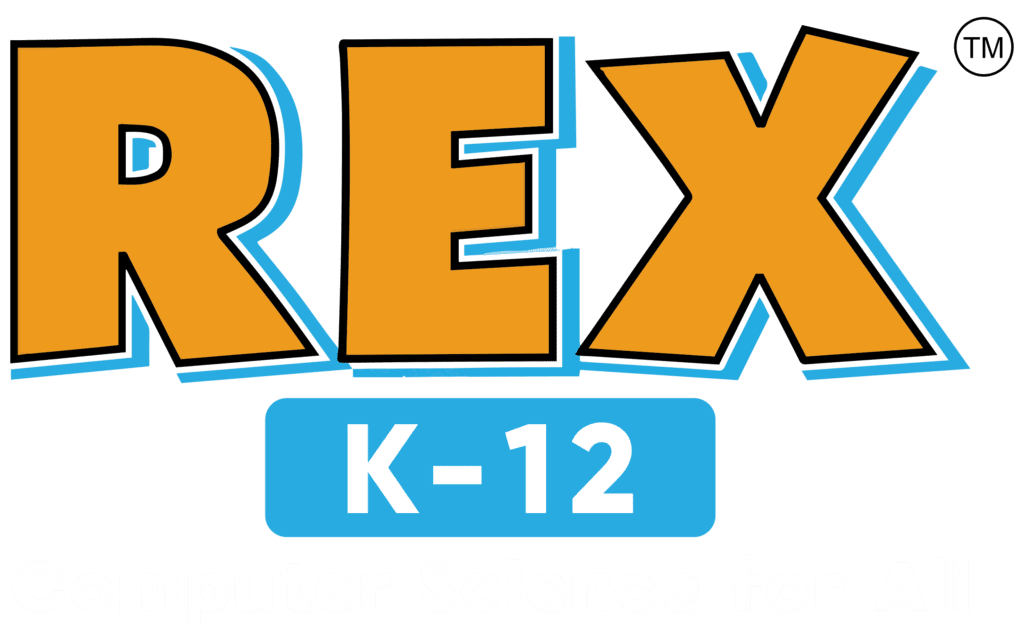Not everyone has a deep background in Computer Science, but that shouldn’t stop us from teaching it or from giving students access to opportunities with CS. In this week’s episode, we chat with Instructional Technology Coach Sarah Phelps about how computer science can help students make connections to other subjects and empower their learning.
Unleashing the Power of Computer Science Education: Insights from Kristen Magyar
Introduction:
Welcome to an enlightening exploration of computer science education! In this blog post, we have the privilege of diving into the world of computer science with Kristen Magyar, a passionate stream teacher and TOSA (Teacher on Special Assignment) of instructional technology. Kristen’s wealth of experience and dedication to integrating computer science into early education offer invaluable insights that can empower educators and inspire students. So, grab a cup of coffee and join us on this exciting journey!
The Impact of STEAM Education:
Let’s start by discussing the remarkable impact of STEAM education. We’re all familiar with STEM (Science, Technology, Engineering, and Math), but have you ever considered the transformative power of adding “A” for Art? Kristen Magyar believes that incorporating art into STEM subjects is the key to fostering creativity, enhancing research skills, and instilling a sense of accountability in students. By embracing the arts, we encourage a holistic approach to problem-solving and critical thinking.
Kristen’s Role as a TOSA:
Now, let’s take a closer look at Kristen’s role as a TOSA. When the pandemic hit, Kristen stepped away from her stream teaching position to support her fellow educators. As a TOSA of instructional technology, she became the go-to person for guidance, resources, and professional development. Kristen’s responsibilities included addressing the unique challenges of remote learning, facilitating communication between schools and families, and providing essential support to teachers navigating the ever-evolving educational technology landscape. Her adaptability, resilience, and dedication make her an invaluable asset in her district.
Integrating Computer Science at an Early Age:
Kristen’s passion for computer science education took root when her district initiated a STEM program. Intrigued by the possibilities, she immersed herself in the world of computer science, attending conferences, exploring different platforms, and connecting with experts. Kristen soon realized the importance of introducing computer science concepts to young students. She integrated coding and typing skills into her classes, even for kindergarteners! This approach enhanced their reading foundations, developed their sequencing abilities, and refined their attention to detail. Kristen’s experience proves that it’s never too early to spark a passion for computer science in young minds.
Building Capacity with Teachers:
Building capacity and inspiring fellow educators to embrace computer science education became Kristen’s mission. She sought to provide exposure, resources, and support to her colleagues, encouraging them to explore new teaching methods and leverage technology effectively. Kristen shared her own classroom experiences, offered successful examples, and fostered a culture of collaboration. Through ongoing conversations, professional development sessions, and resource sharing, she empowered teachers to embark on their own computer science education journey. Kristen’s impact on her educational community is profound.
The Power of Creation in Computer Science:
Kristen firmly believes in moving beyond passive consumption and empowering students to become creators in the realm of computer science. Rather than just engaging with technology, students are encouraged to create digital content, share their projects, and engage in meaningful conversations. By incorporating multimedia presentations, screencasts, and digital projects, students not only enhance their skills but also develop the ability to reach a wider audience, including their families. Kristen’s approach nurtures agency, innovation, and collaboration among students, fostering a lifelong passion for learning and creating with technology.
Sustaining the Momentum:
To ensure the long-term success of computer science education, sustaining the momentum is vital. Kristen’s commitment to professional growth, exploring new resources, and connecting with experts keeps her energy and passion alive. By continuously seeking opportunities, attending conferences, and collaborating with like-minded educators, Kristen remains at the forefront of advancements in computer science education. Her unwavering dedication and infectious enthusiasm serve as a catalyst for inspiring students, empowering fellow educators, and transforming the educational landscape.
Conclusion:
Kristen Magyar’s journey and insights offer a compelling narrative of the potential and power of computer science education. By embracing the principles of STEAM, integrating computer science at an early age, building capacity with teachers, and fostering a culture of creation, Kristen has become an agent of change in her district. Her dedication, resilience, and passion inspire educators to explore innovative teaching methods, while empowering students to become creators, problem-solvers, and lifelong learners. Let us all embrace the transformative potential of computer science education and pave the way for a future generation equipped with the skills and mindset to thrive in an increasingly digital world.
